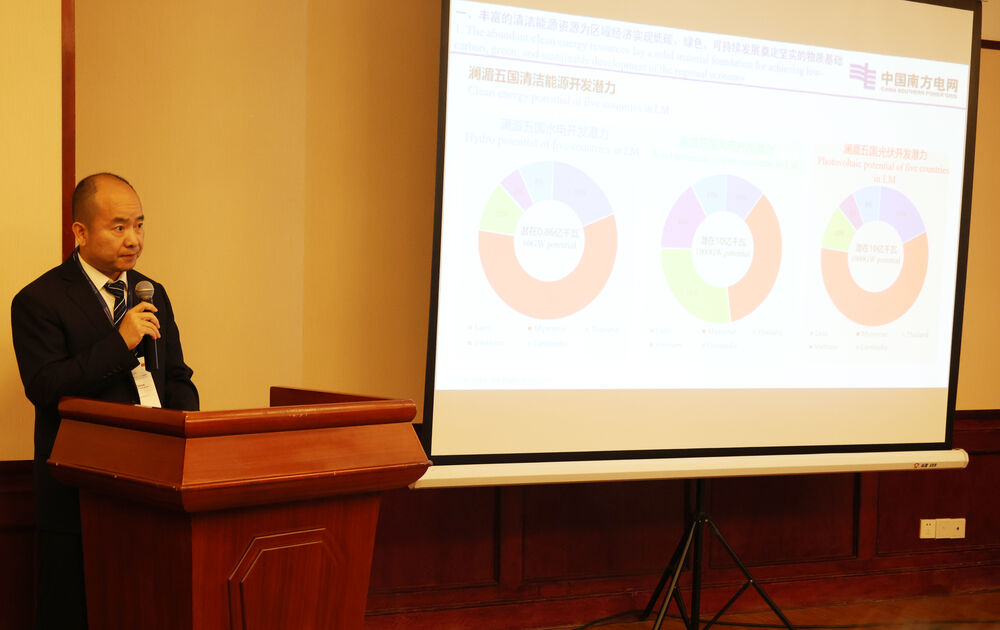Mekong Institute (MI), in partnership with the Center for International Knowledge on Development (CIKD) and the China Southern Power Grid Yunnan International Co., Ltd. (YNIC), brought together experts, policymakers, and stakeholders to deliberate on strategies to foster sustainable and low-carbon development across the Mekong region in a second consultation workshop held on July 21 and 27, 2023.
Building on the success of the initial consultation workshop held on June 27 – 28, 2023, the second workshop explored the interplay between the Global Development Initiative (GDI) and the Sustainable Development Goals (SDGs), with emphasis on SDG Goal No. 7 – Clean and Affordable Energy. As global development is at a critical juncture, P. R. China put forth the GDI as a support mechanism for developing nations aiming to fulfill the SDGs.
The workshop placed its emphasis on green and low-carbon development which stands as one of the key priority areas of GDI. It allowed participants to revisit national climate commitments and discuss ways governments can help channel various funding sources into greening the energy sector.
The first day of the workshop was conducted in a virtual format on July 21. Dr. Taidong Zhou, CIKD Vice President, welcomed the participants and delivered a keynote speech where he emphasized that the transition to clean energy is an inevitable trend for future global development.
Representatives from United Nations Framework Convention on Climate Change (UNFCCC) Regional Collaboration Centre for Asia-Pacific, Economic Research Institute for ASEAN and East Asia (ERIA), and Stockholm Environment Institute (SEI) served as resource persons during the panel discussion. The discussions aimed at updating and refining each country’s pathways and exploring opportunities toward achieving SDG 7 and embracing a low-carbon future.
On July 27, the workshop reconvened the participants in a hybrid setting and was held as one of the three thematic breakout sessions of the Mekong Forum 2023.
“The GMS has emerged as a recognized fast-growing economic block. As an offshoot, energy demand is projected to increase to adequately support economic growth and ultimately facilitate better access of rural communities to socio-economic improvements in terms of education, medical care and services, and more equitable livelihood opportunities,” said Mr. Suriyan Vichitlekarn, MI’s Executive Director, in his introductory remarks during the session.
High-level officials graced and shared their insights during the session including Mr. Ke Yousheng, Permanent Representative of P. R. China to UNESCAP and MI Steering Committee Member, Dr. Taidong Zhou, Vice President of CIKD, and Mr. Xu Yuxiao, General Manager of Strategy and Development Department of YNIC.
Participants showcased successful energy and climate action projects from their respective countries, emphasizing their potential for scalability and the key factors contributing to their effectiveness.
The forum encouraged participants to propose areas necessitating support from the GDI and south-to-south cooperation. Collaboration areas spanned capacity building, innovation and technology, resource allocation, and partnership creation.
Moreover, the deliberations probed barriers to realizing SDG 7 and energy transition, along with impediments to accessing climate finance and the requisite capacities for successful climate finance access.
Culminating the session was an engaging activity where participants shared their recommendations to enhance regional collaboration. Three main areas of cooperation emerged including technology development, institution strengthening, and carbon market development.
Participants committed to finding actionable solutions and strategies aimed at providing financial and technical assistance to countries or regions operating within a cooperative framework. The discussions centered around streamlining the pathway to climate financing, advocating carbon market mechanisms, establishing regional funding mechanisms, and harnessing the potential of regional partnerships and initiatives.
The consultation workshop served as a beacon of progress, uniting minds and resources toward a greener energy sector and a more sustainable future for the Mekong region.








